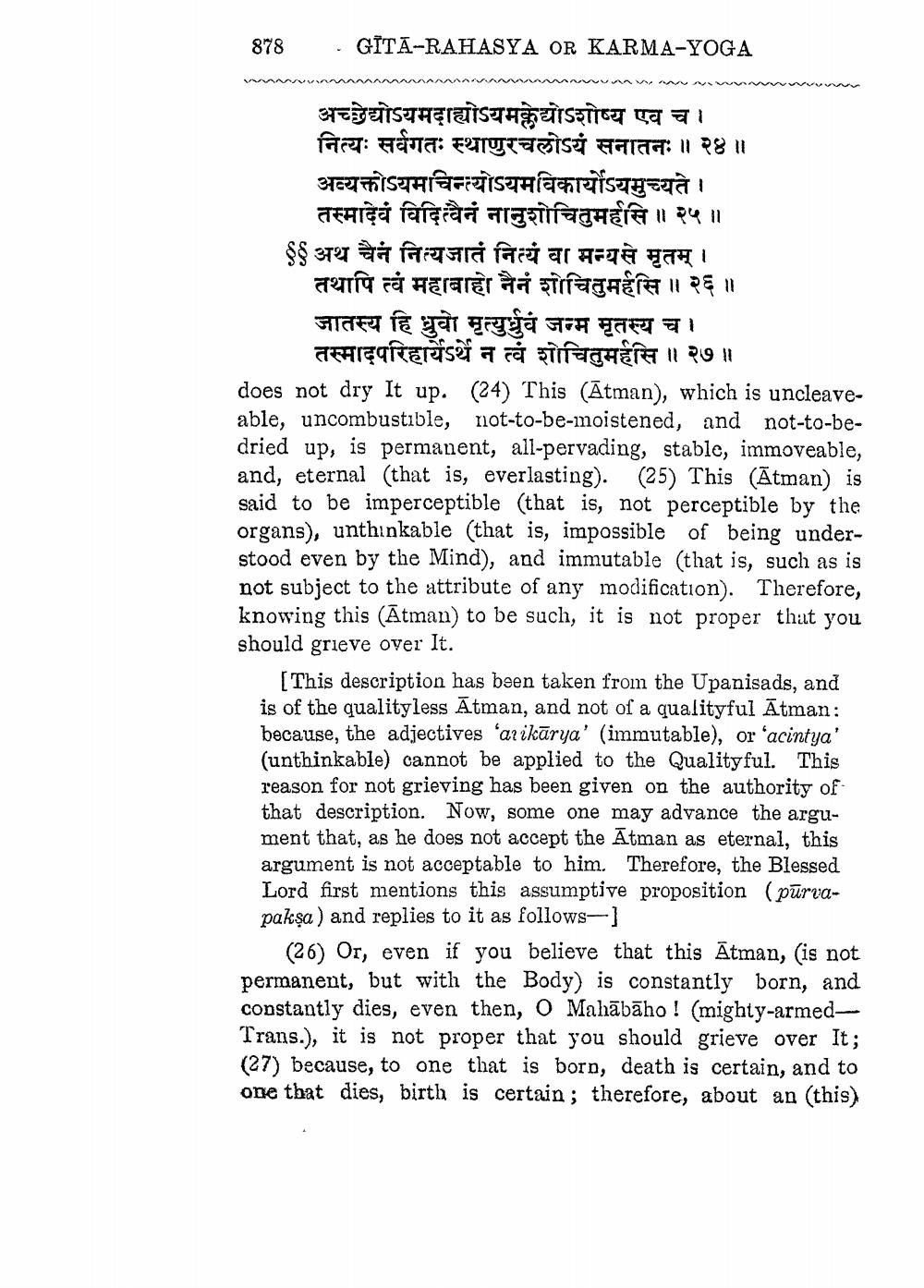________________
878 GĪTĀ-RAHASYA OR KARMA-YOGA
unawan अच्छेद्योऽयमदाह्योऽयमक्लेद्योऽशोष्य एव च। नित्यः सर्वगतः स्थाणुरचलोऽयं सनातनः ॥ २४॥ अव्यक्तोऽयमचिन्त्योऽयमविकार्योऽयमुच्यते।
तस्मादेवं विदित्वैनं नानुशोचितुमर्हसि ॥ २५ ॥ ६६ अथ चैनं नित्यजातं नित्यं वा मन्यसे मृतम् ।
तथापि त्वं महाबाहो नैनं शोचितुमर्हसि ॥ २६ ॥ जातस्य हि ध्रुवो मृत्युध्रुवं जन्म मृतस्य च ।
तस्मादपरिहार्येऽर्थे न त्वं शोचितुमर्हसि ॥ २७ ॥ does not dry It up. (24) This (Ātman), which is uncleaveable, uncombustible, not-to-be-moistened, and not-to-bedried up, is permanent, all-pervading, stable, immoveable, and, eternal (that is, everlasting). (25) This (Ātman) is said to be imperceptible (that is, not perceptible by the organs), unthinkable (that is, impossible of being understood even by the Mind), and immutable (that is, such as is not subject to the attribute of any modification). Therefore, knowing this (Ātman) to be such, it is not proper that you should grieve over It.
[This description has been taken from the Upanisads, and is of the qualityless Atman, and not of a qualityful Ātman: because, the adjectives 'arikārya' (immutable), or 'acintya' (unthinkable) cannot be applied to the Qualityful. This reason for not grieving has been given on the authority of that description. Now, some one may advance the argument that, as he does not accept the Atman as eternal, this argument is not acceptable to him. Therefore, the Blessed Lord first mentions this assumptive proposition (pūrvapaksa) and replies to it as follows
(26) Or, even if you believe that this Ātman, (is not permanent, but with the Body) is constantly born, and constantly dies, even then, O Mahābāho ! (mighty-armedTrans.), it is not proper that you should grieve over It; (27) because, to one that is born, death is certain, and to one that dies, birth is certain; therefore, about an (this)




